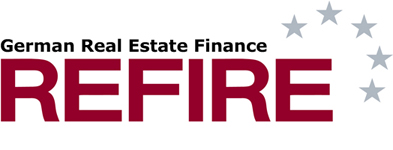We don’t envy the Deutsche Bundesbank, whose every utterance is parsed and scrutinised for meaning and doublemeaning. It can’t be easy when, in trying to cut through the usual swathe of innuendo and sphinxlike obfuscation that central bankers have become famous for, you issue a clear opinion that is supposed to be heard loud and clear – only for your designated spokespersons to have to spend the next month or so “putting those views into context”.
When the Bundesbank said last October in their monthly financial review that German residential prices were up to 20% overvalued, a storm erupted in the media, with mouthpieces for every conceivable real estate interest group being wheeled out to explain how there is no bubble, prices are based on fundamentals, market merely reacting to supply and demand, etc. Of course, responded the Bundesbank, mustn’t generalise from isolated and regional overheating, some markets exhibiting signs of excess, keeping a close eye on credit issuance levels, function of the bank to admonish wayward practice, and so on, all in a series of conciliatory put-downs. A further week or so, and then the matter faded out of the headlines.
Well, darned if the Bundesbank isn’t at it again. This time prices in the top cities could be up to 25% overvalued, with 15-20% almost a given at this stage, according to the Bundesbank’s February missive. Still, no major worries, and talk of a bubble is grossly overdone, say the bank’s economists, while the real estate industry seizes upon the debate to issue further fresh reports on the fundamental soundness of it all.
Across town in Frankfurt at the European Central Bank, the protectors of the eurozone’s currency are wheeling out the heavy cannon to make sure that interest rates stay rock bottom, to give the hapless Spaniards, Italians, Portuguese, Irish and Greeks some perspective that they can clamber out of their holes.
But, hey presto! Such low interest rates are nominally a godsend to those investing in German property – money has never been so cheap. With the German penchant for borrowing at fixed rates – albeit at a slightly higher rate than before, but fixed for five or ten years – Europe would have to be on the verge of total collapse before the arguments against borrowing under these circumstances would be compelling. Why not go for it?
Asset price inflation all around the world is rampant – stocks, corporate bonds, commodities, art, wine – why, even gold is on the rebound. With such paltry returns on government bonds available, and a traditional German aversion to investing directly on the stock exchange, the property market is an obvious choice for many security-conscious investors. After all, in a week which saw shareholders in Germany’s erstwhile largest quoted company IVG Immobilien being finally, irrevocably, wiped out, taking control or your own destiny with your own money is starting to make sense to a lot more Germans - which includes taking the fearful step of home ownership.
Sceptics and fear-mongers may bemoan the slipping of credit standards – and, anecdotally, we at REFIRE have witnessed some credit financing recently that elicited a deep intake of breath – but as we know, such periods of low interest rates can last longer than jealous critics can remain harping on the sidelines, to paraphrase Keynes.
Could German residential property prices fall? Throughout this whole debate it’s easy to overlook the fact that in much of Germany, prices HAVE been falling steadily for twenty years. Properties in Germany’s Eifel, Vogelsberg or Hunsrück regions and swaths of Rheinland-Palatinate in the western part of the country are ridiculously cheap by any other European standards, not to mention Germany’s eastern states.
These are wonderful places to live, and healthy places to raise a family, if you’re able to connect up to the centres of work and creativity by broadband and don’t need the daily stimulus provided by the larger urban centres. There’s no madness in these prices – although it certainly helps to be a DIY enthusiast with no aversion to carrying out all your own house improvements. And of course, there are very few jobs. Not surprisingly, young people are leaving these places in droves.
It’s also largely true that, given the heady prices paid in places like Central London for property, it doesn’t feel in Germany like property bubbles feel elsewhere. Even in battered Dublin, residential prices have risen by 16% over the past year and are turning upwards in other regions, in a country that still has 300,000 houses surplus to requirements. For those not being crushed by debt, money now is cheap and becoming plentiful. Normally this would – and should - lead to inflation, but apart from pushing up asset prices, this effect is not really kicking in in Germany, yet.
The truth is that Germany needs inflation of more than 2% annually, if the European Central Bank’s goal of nearly 2% inflation for the eurozone as a whole has any chance of being met. With the Greeks, Spaniards, Portuguese and Irish forced to accept deflation to get back in the game, it’s up to Germany to do the honourable thing. But last year German inflation was 1.5%, while wages rose by 1.3%, for a loss in real purchasing power of 0.2%. This time around, it’s not the proverbial German fear of inflation that’s causing money to pour into the property market. It’s that, if there’s any danger of the euro-ship going down, it still generally pays to have a ticket for first-class.
